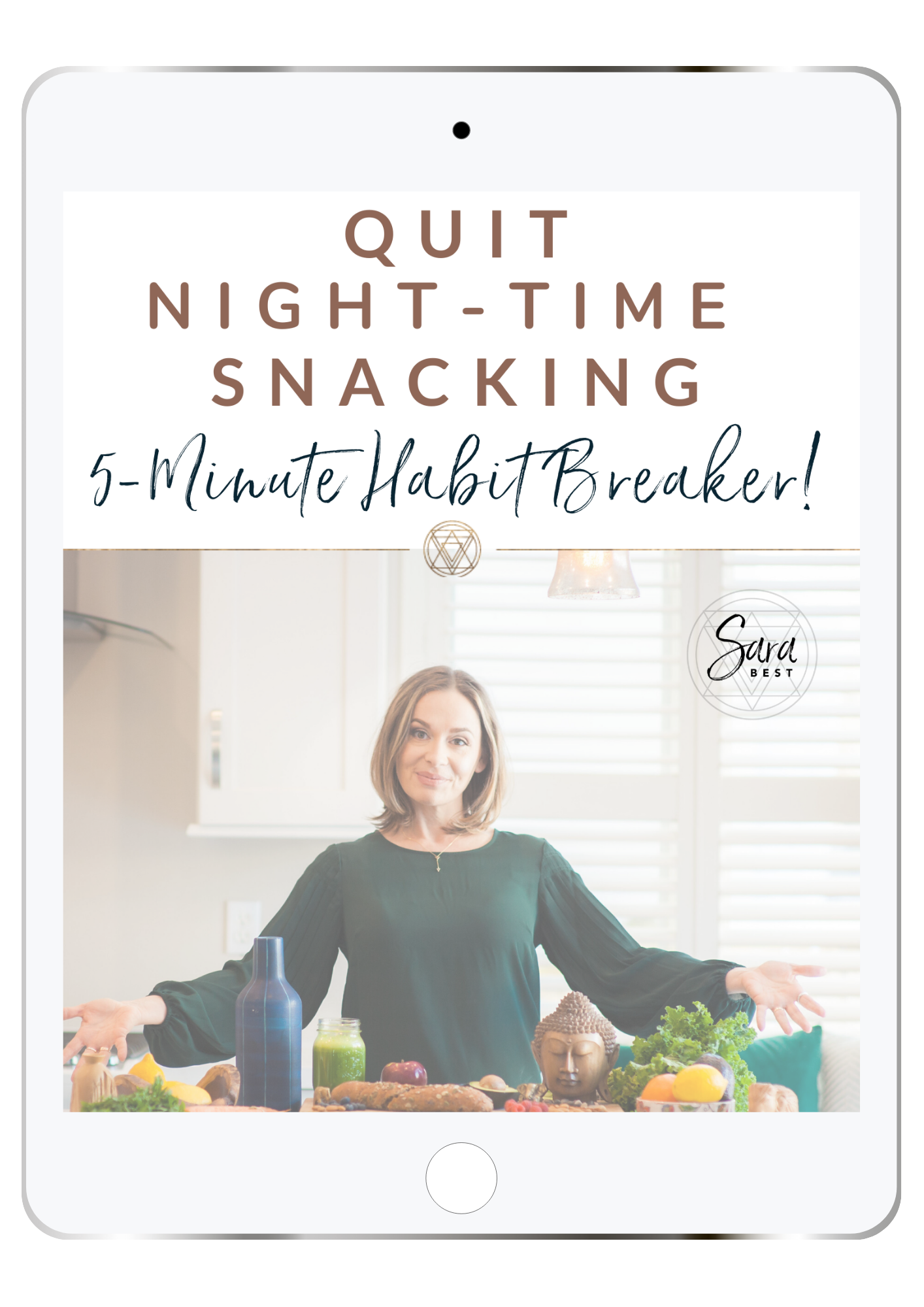
“I have no willpower around carbs.”
“It’s sweets! I absolutely cannot have them in the house or I’ll eat the whole thing!”
“I was good all week and then I just went crazy this weekend at a friend’s BBQ.”
I can’t tell you how many times I hear one of these when talking to a client or a member of my online community.
Again and again I see people making this same fundamental mistake – they assume that their overeating is about some combination of irresistible food and their chronic lack of willpower. They believe that when you combine the carbs, sugar, French fries or cheeseburgers with their own personal lack of strength, disaster ensues.
But the truth is that overeating is almost never about either food or willpower. It’s about something else that’s causing us to feel uncomfortable. And since our brains are designed to want to move from pain towards pleasure, when we feel pain in some area of our lives, we are naturally drawn to food (especially sugar and fat) because it is an easy and predictable source of pleasure.
So, if overeating isn’t about food or willpower, how do we stop it?
Well, since the overeating is just a symptom of a bigger issue, we turn our attention to figuring out what the underlying issue is and we work to address that. And once that root cause has been addressed, the symptom of overeating will be dramatically reduced.
Here are just a few of the bigger issues that your brain might be trying to use food to address (unsuccessfully):
- You’re not eating mindfully
If you’re multitasking and not paying attention while you’re eating, your brain will have a hard time properly digesting and assimilating the nutrients you ingested. As a result, it will continue to send out hunger signals, even after you’ve eaten enough. Further, when we are eating without paying attention, we miss the subtle signals from our body that tell us when we’ve eaten enough. Thus, it’s not until we’ve either eating everything on the plate, or we’re uncomfortably full, that we stop.
- Dieting
Dieting almost always leads to overeating. Your body loves you and wants to keep you alive at all costs. So, when you start drastically restricting calories, it responds by increasing its hunger response in an attempt to try to get you to eat more. The more you restrict, the hungrier you get until eventually you crack and overeat.
- Poor nutrient balance
If you’re not getting enough macro nutrients (protein, fat, carbohydrate, water, fiber) or micronutrients (vitamins, minerals, etc.), your body will often respond by making you hungry. Its hope here is that, if it can get you to eat more food, you will ingest more of the nutrients it requires.
- Not enough sleep
Your body requires sleep for hundreds of different reasons, but one of them is to properly balance the levels of leptin and ghrelin. Leptin and ghrelin are hormones in your body that regulate appetite. If they are out of whack (a common symptom of lack of sleep), your appetite will be artificially increased and you may overeat as a result.
- Too much stress
When we’re under chronic stress (as almost all of us are in our busy modern world), our bodies are constantly in a “fight or flight” state. When we’re in this state, blood and energy rushes to our limbs to allow us to hit or run, and to our brains to allow us to make quick, life-saving decisions. In this state, digestion shuts down because it is not deemed necessary to our immediate survival. As a result, when we’re chronically stressed, it becomes very difficult for our bodies to properly digest the food we eat and absorb and assimilate its nutrients. When our bodies aren’t getting the nutrients they need, they signal hunger to make us eat more in an attempt to seek out those nutrients.
- Feeling unsatisfied
As humans we have a tendency seek out “symbolic substitutes.” Symbolic substitutes are things or actions that we use to fill a void that we don’t know how to fill in a more meaningful way. For example, substituting the love of an animal for human love for, or substituting adventure thrill seeking for meaningful work, or substituting social media for intimate connection with real people. Food is one of the most common symbolic substitutes we use because it’s readily available everywhere and it has a dramatic and almost instant chemical effect on the brain. We use food to substitute love, connection, companionship, appreciation, respect and so much more.
These are just a few of the underlying issues that can lie at the root of our overeating. Take some time to get curious and figure out which of these might be at play for you.





Wow that was odd. I just wrote an incredibly long comment but after I clicked submit my comment didn’t show up. Grrrr… well I’m not writing all that over again. Anyways, just wanted to say great blog!